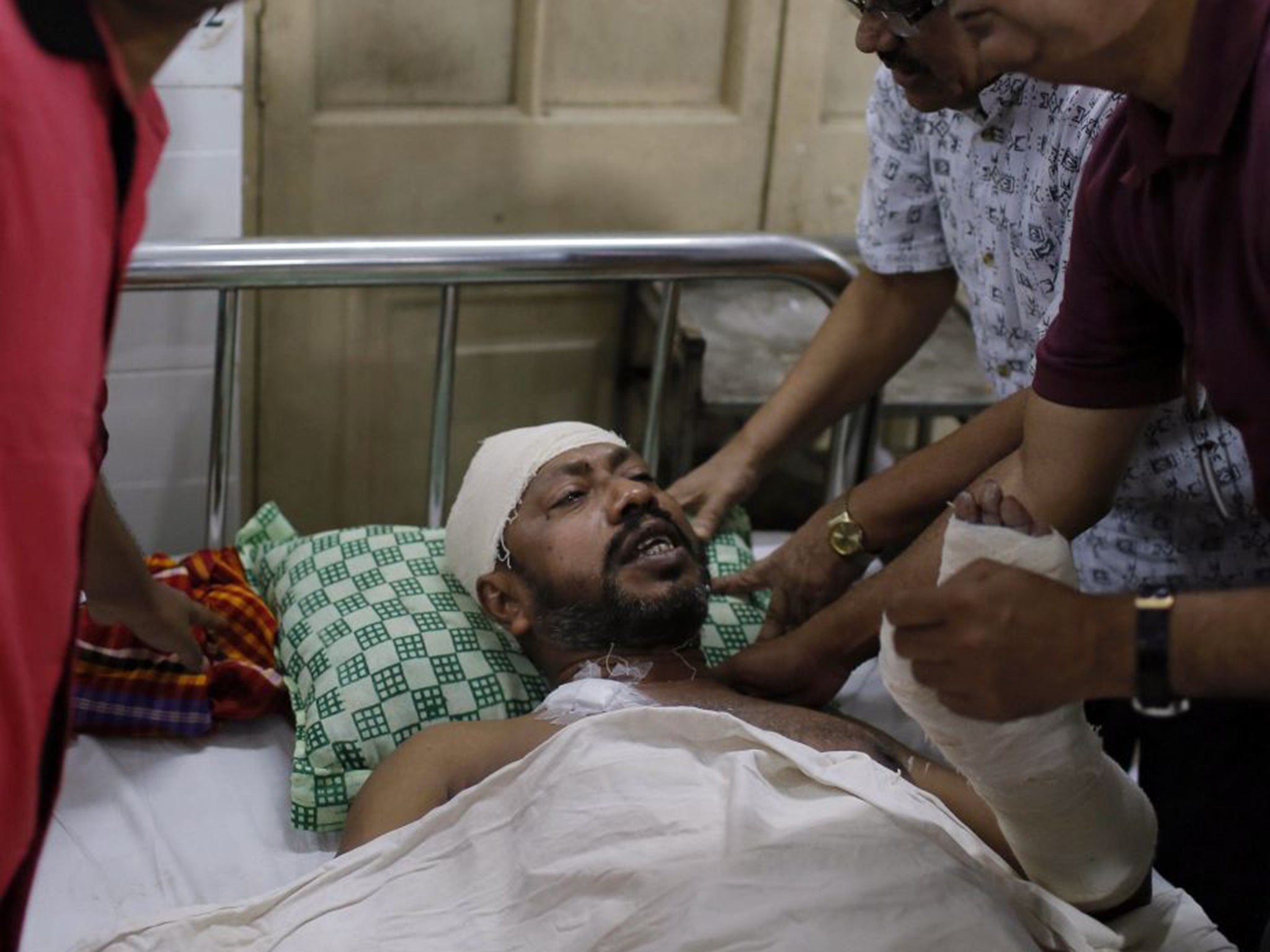Publisher of secular blogger Avijit Roy hacked to death in Bangladesh
Local Islamist militants blamed as one man dies and more are wounded in twin attacks in Bangladesh capital

Your support helps us to tell the story
From reproductive rights to climate change to Big Tech, The Independent is on the ground when the story is developing. Whether it's investigating the financials of Elon Musk's pro-Trump PAC or producing our latest documentary, 'The A Word', which shines a light on the American women fighting for reproductive rights, we know how important it is to parse out the facts from the messaging.
At such a critical moment in US history, we need reporters on the ground. Your donation allows us to keep sending journalists to speak to both sides of the story.
The Independent is trusted by Americans across the entire political spectrum. And unlike many other quality news outlets, we choose not to lock Americans out of our reporting and analysis with paywalls. We believe quality journalism should be available to everyone, paid for by those who can afford it.
Your support makes all the difference.A publisher of secular books has been hacked to death and three other people were wounded in two separate attacks at publishing houses in Dhaka, the capital of Bangladesh.
Both of the publishers involved in the attacks had published works of the US-based blogger and writer Avijit Roy, who was hacked to death on the Dhaka University campus while walking with his wife in February. At least four atheist bloggers have been murdered in the country this year for writing critically about Islamist militancy.
The body of Faisal Arefin Deepan of the Jagriti Prokashoni publishing house was found inside his office following the second of the attacks, a senior police officer, Shibly Noman, said.
Earlier in the day, Ahmed Rahim Tutul and two writers were shot and stabbed by three men in the office of the Shudhdhoswar publishing house. Police chief Jamal Uddin Meer said the assailants then locked the wounded men inside the office before escaping. “We had to break the lock to recover them,” he added.
The writers were identified by police as Ranadeep Basu and Tareque Rahim. All three of the victims were taken to hospital, and Tutul was in a critical condition, Mr Meer said.
Bangladesh has been shaken by a series of attacks this year for which Islamic extremists have claimed responsibility, including the blogger murders and, more recently, the killing of two foreigners – an Italian aid worker and a Japanese agricultural worker. The attacks come amid fears about radical Islam’s rise in the country, with secularist writers seemingly targeted in response to a government crackdown on radical groups.
No one immediately took responsibility for the latest attacks. The Islamist group Ansarullah Bangla Team had claimed it had carried out the blogger killings and recently threatened to kill more bloggers.
Last month, a bomb attack on thousands of Muslims at the main Shia shrine in Dhaka killed a teenage boy and injured more than 100 other people. Islamic State (IS) claimed responsibility for the attacks on the two foreigners and the bombing, but the government has denied that the extremist Sunni militant group has any presence in the country. Dhaka has instead blamed domestic Islamist militants and Islamist political parties – specifically the opposition Bangladesh Nationalist Party and its main ally, Jamaat-e-Islami – for orchestrating the violence.
Hundreds of activists held an impromptu march in Dhaka, condemning the government for failing to protect the country’s secular writers, with a number of writers already thought to have fled the country or to have gone into hiding after receiving threats.
“We’re stunned. One after another secular writer and bloggers have been silenced and murdered. Yet the government has failed to protect them,” said Imran Sarker, who heads a secular bloggers group.
AP
Join our commenting forum
Join thought-provoking conversations, follow other Independent readers and see their replies
Comments